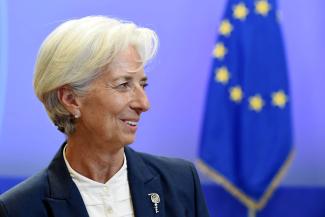Mulitlateral institutions
The IMF we know

For decades, the IMF demanded strict, pro-cyclical measures from countries in financial crises. But in late 2008, Olivier Blanchard, the IMF's chief economist, stated in a paper he co-authored (Spilimbergo et al.) that a different approach was needed. To avoid “another great depression” his team argued for a global fiscal package. The authors wanted it to be:
- delivered fast, since the need for action was immediate,
- large and lasting, because private demand would drop considerably for a long time, and
- flexible enough to allow for more support should more support be needed.
Put in simple terms, the IMF experts opted against austerity and for fiscal stimulus. In view of past experience, it is surprising that it took the multilateral institution so long to come to this conclusion. The history of its conditionalities reads like a history of failure – from the downslide in sub-Saharan Africa beginning in the 1970s, to Latin America's “lost decade” of the 1990s, to the Southeast Asian crisis in the late 1990s. Again and again, IMF policies caused economic contraction, not growth.
Yes, the economies concerned eventually did recover. However, the upswing normally went along with changes of policy and changes in the global economy, such as rising demand for commodities. IMF-imposed austerity made adjustment periods longer and more painful, compounding problems of poverty and unequal income distribution. Moreover, the Fund has a history of meddling in domestic politics in the name of "technocratic" competence. All in all, IMF support proved so awful that most developing countries are wary of ever having to approach the Fund. They prefer to hold large foreign-exchange reserves as a means of "self-insurance", forsaking options to make more productive use of these resources.
The apparent change of course was welcome in late 2008, a time when the G7 nations were rocked by crisis. However, the IMF soon reverted to type, imposing its usual severe austerity measures with the usual adverse effects on countries like Pakistan, Hungary and Ukraine. It did not heed the advice of its competent and extraordinarily well-paid researchers.
The IMF's role in the Euro crisis, which mostly hurt small, peripheral EU nations, has not been beneficial either. In regard to Greece, observers from the developing world are bewildered to suddenly see the IMF cast in the role of the good guy simply because, unlike the European institutions, it accepts the need to restructure the country's sovereign debt. The plain truth is that the current level of Greek debt is unsustainable and must be reduced.
To economists from Asia, Africa and Latin America, it is obvious that European resistance to debt relief does not stem from economic considerations. It is driven by complex (and unpleasant) inner-European politics. EU rhetoric now emphasises "adherence to rules" and pretends that those rules led to success in other crisis countries where youth unemployment rates are still around 30 % to 50 %.
It is profoundly irritating that the IMF, a multilateral institution, has been drawn into enforcing Euro zone rules that do not make economic sense. Moreover, some European leaders seem to believe that the Fund should play that role at the expense of its own rules which state that it can only support a country if such support will lead to debt sustainability.
Two consecutive Greek programmes have not achieved debt sustainability since 2010. Now a third one is about to be finalised. Most likely, there will be "extend and pretend": a fudged and non-transparent kind debt of relief with low interest rates and annuities suspended for many years. While it is not sure that the IMF will contribute funding, it is giving technical advice and firmly demanding more austerity that will push the economy into an even deeper spiral of depression. The consequences will be more social tensions and more politics of the unpleasant and divisive sort.
All this looks only too familiar to us in the developing world. We know that the IMF excels in enforcing hegemonic power, but is poor at managing financial crises. A new policy approach would have been most welcome – but apparently, that hope was too good to be true.
Jayati Ghosh is an economics professor at Jawaharlal Nehru University in Delhi.
jayatijnu@gmail.com
Link:
Spilimbergo, A., Symansky, S., Blanchard, O., and Cottarelli, C., 2008: Fiscal policy for the crisis.
https://www.imf.org/external/pubs/ft/spn/2008/spn0801.pdf







